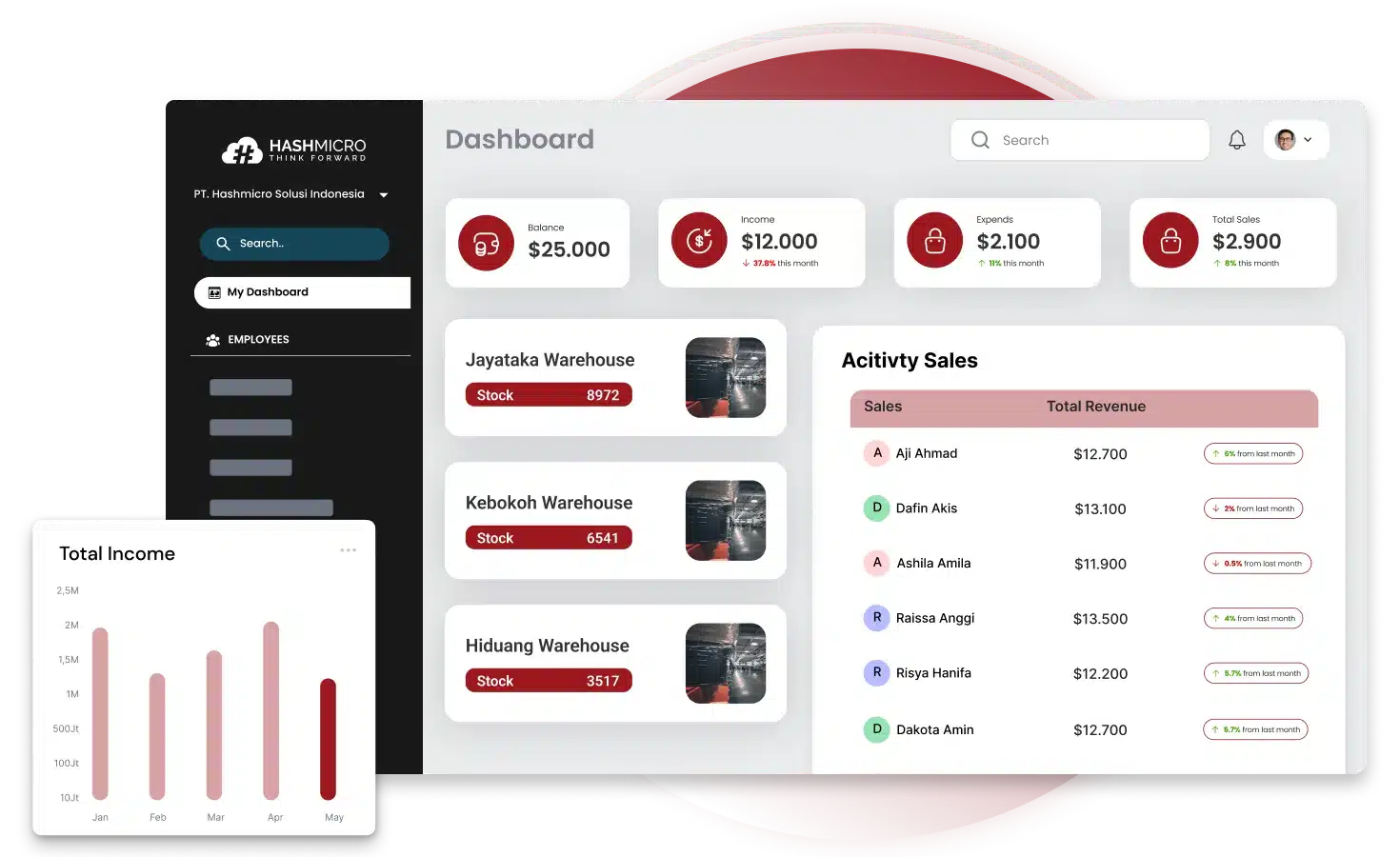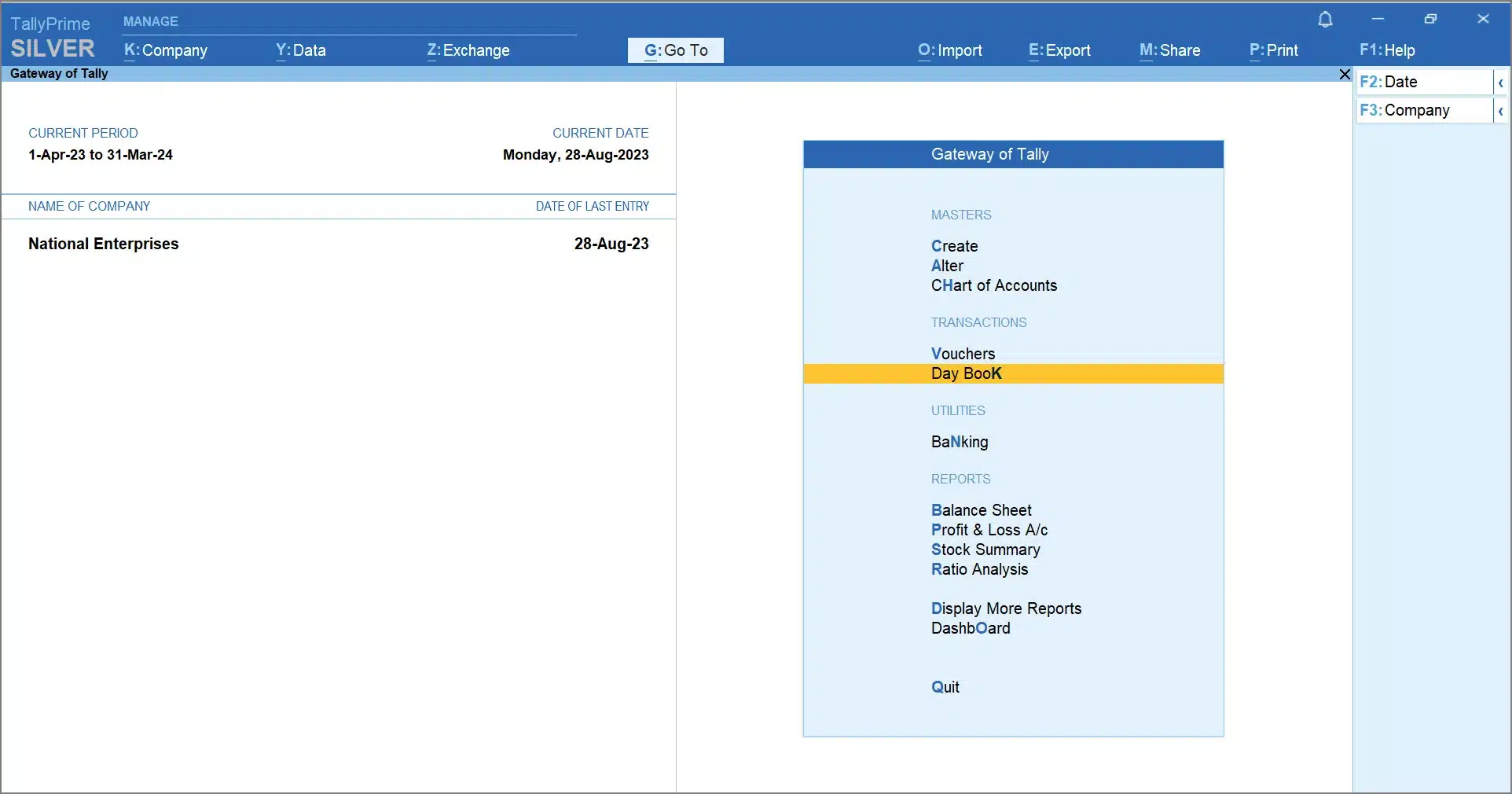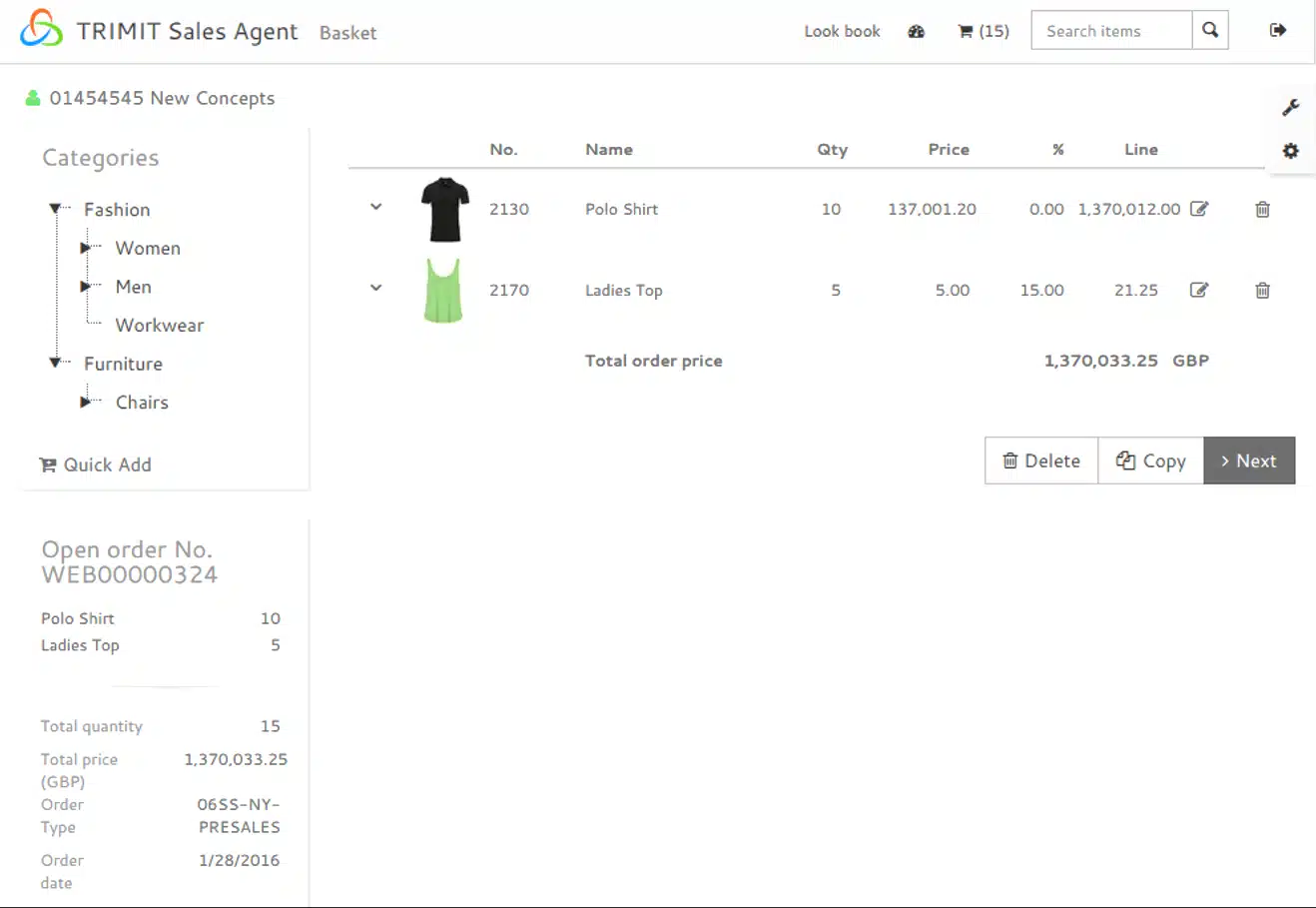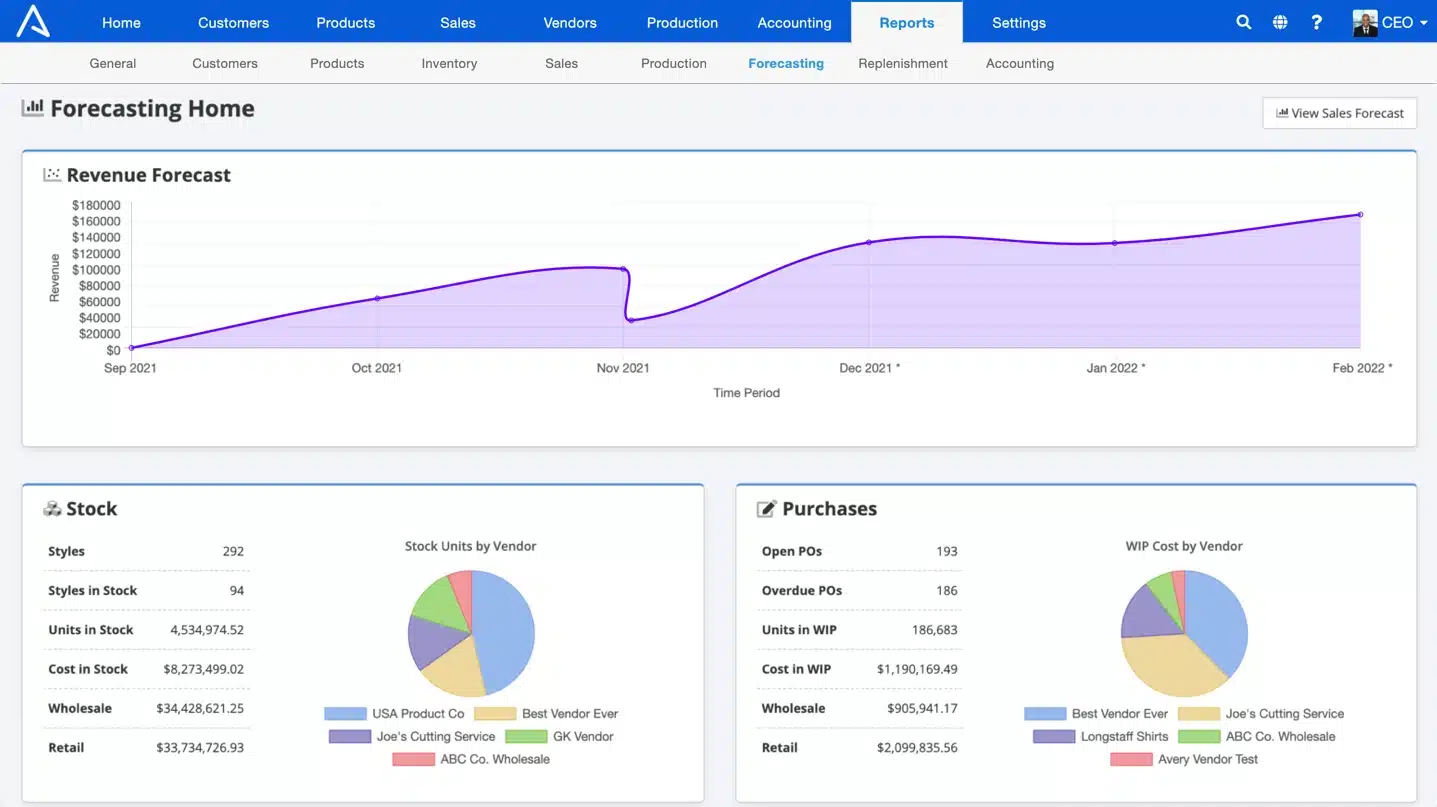ERP for apparel industry in the Philippines has always been about the efficiency and effectiveness of the production to distribution process of apparel businesses. Ngunit nauunawaan mo ba kung paano gumagana ang mga sistemang ito at kung aling uri ang pinakaangkop para sa iyong kumpanya?
Therefore, you need to read and understand a guide to the ERP system for the apparel industry correctly. A complete guide to ERP systems begins with an understanding of its unique requirements. These needs may encompass managing intricate supply chains and ensuring timely production and delivery.
If you want to know more about this ERP system, this article will help you understand it further. Read until the end to find out examples of ERP for the apparel industry along with tips on how to maximize its effectiveness even if you are not in the business area.
Key Takeaways
|
Table of Contents
What is ERP for Apparel Industry?
ERP for the apparel industry is a comprehensive software solution designed to integrate and manage all critical business processes within apparel companies. This includes functionalities such as product design and development, inventory and supply chain, order processing, and financial management.
By consolidating these operations into a unified platform, an ERP system enhances operational efficiency, improves data accuracy, and facilitates informed decision-making. Ultimately, ERP systems empower apparel companies to streamline workflows, reduce costs, and achieve sustainable growth.
How Can ERP for Apparel Industry Help Your Business?
An ERP for apparel industry primarily helps streamline and integrate various processes within the industry, including product design, procurement, inventory management, production planning, order fulfilment, and financial management.
Moreover, ERP software Philippines provide robust reporting and analytics capabilities, enabling apparel companies in the Philippines to gain valuable insights into their operations, performance, and profitability. These insights identify areas for improvement and support strategic planning for future growth.
ERP Features that Essentials for the Philippine Apparel Sector
 In the Philippine apparel industry, selecting an appropriate ERP system is crucial for efficient and streamlined operations. Certain vital features are indispensable in an ERP for apparel industry to address this dynamic market’s specific needs. Below are the essential features required by the Philippine apparel industry.
In the Philippine apparel industry, selecting an appropriate ERP system is crucial for efficient and streamlined operations. Certain vital features are indispensable in an ERP for apparel industry to address this dynamic market’s specific needs. Below are the essential features required by the Philippine apparel industry.
1. Inventory management
Inventory features allow you to maintain real-time visibility and control over inventory levels. This includes tracking raw materials, work-in-progress (WIP), and finished goods across various locations. The system helps to optimise stock and prevent issues like overstocking or stockouts.
2. Supply Chain Management (SCM)
Effective supply chain management software is essential to ensure seamless coordination and collaboration among these parties, optimize procurement processes, and guarantee timely delivery of products to customers.
3. e-Commerce integration
e-Commerce integration features are vital in the Philippine apparel industry, where online sales and digital channels have become increasingly significant. Robust e-commerce integration capabilities are essential for apparel companies to connect their online platforms seamlessly with their core business operations.
4. Procurement
Procurement features in an ERP for apparel industry provide tools to manage supplier relationships, track supplier performance, and streamline the procurement process from requisition to purchase order creation and invoicing.
Advantages of ERP Software for the Philippine Apparel Industry
ERP for apparel industry plays a pivotal role in streamlining and optimizing various industry processes. Here are the key benefits ERP system can offer the Philippine apparel sector.
- Streamlined product development: Centralizes and automates product development workflows, reducing time-to-market and enhancing innovation.
- Efficient inventory management: The apparel ERP system provides real-time visibility into inventory levels and optimizes control, ensuring the availability of the right products when needed.
- Accurate order processing: Automates order management to minimize errors and ensure timely fulfilment, enhancing customer satisfaction.
- Enhanced quality control: Effective quality monitoring ensures products meet standards, reducing returns and strengthening brand reputation.
- Advanced reporting and analytics: Offers comprehensive reporting and analytics tools for informed decision-making and identifying opportunities for improvement.
8 Best ERP for Apparel Industry in the Philippines
To help streamline your business operations, we’ve compiled a list of ERP solutions tailored specifically for the apparel sector. Each ERP software offers unique features, allowing you to select the one that best aligns with your organization’s goals.
1. HashMicro ERP Software for Apparel Industry
 Why We Pick It: HashMicro is recognized for its comprehensive ERP approach, specifically designed to meet the complex needs of the apparel industry.
Why We Pick It: HashMicro is recognized for its comprehensive ERP approach, specifically designed to meet the complex needs of the apparel industry.
With numerous apparel ERP system vendors and providers available, selecting the best solution for the apparel industry can be challenging. As one of the best solutions, HashMicro ERP stands out for being chosen by over 1,750 businesses across various industries.
HashMicro’s ERP software enhances productivity and optimizes business processes, enabling apparel businesses to streamline operations and drive growth. Users can make informed decisions to expand their businesses effectively with a free demo and features, such as:
- Built-in business intelligence (BI): Advanced tools that transform and analyze data from multiple perspectives, providing in-depth insights for strategic decision-making.
- Production cost control: Comprehensive control over production costs, from purchasing and production outcomes to managing component transfers from defective products.
- Mobile apps: Available on iOS and Google Play Store platforms, apparel managers and staff can access the ERP system effortlessly from various mobile devices.
- Sheet management: Efficiently manages, automates, and analyzes business documents in spreadsheet format, ensuring data security and seamless integration.
- Access-level control: Manages and restricts employee access to different data and functions within the system based on roles and responsibilities.
| Pros | Cons |
|---|---|
| Highly customizable | It is more suitable for mid-scale to large company because of its comprehensive features |
| Excellent customer support | |
| Intuitive user interface | |
| Comprehensive analytics |
2. NetSuite
Why We Pick It: NetSuite offers a powerful cloud-based ERP known for real-time visibility and scalability, ideal for growing apparel companies.
Founded in 1998, NetSuite has been a pioneer in cloud ERP, serving businesses worldwide. Its tools cover diverse business functions, including financials, inventory, and order management, making it particularly suited for medium to large apparel businesses.
Key features:
- Global Business Management
- Order and Inventory Management
- Financial Planning
- Demand Forecasting
- Unified E-commerce Platform
| Pros | Cons |
|---|---|
| Real-time data visibility | Steeper learning curve |
| Excellent scalability | Higher dependency on the cloud |
| Advanced reporting tools | Requires robust internet access |
| Strong integrations | Customization is costly |
3. MRPeasy
Why We Pick It: MRPeasy is a flexible ERP solution for small to medium-sized businesses, particularly those focused on production and manufacturing.
Established in 2014, MRPeasy provides a user-friendly ERP system designed to address the needs of small and medium enterprises (SMEs) in the manufacturing sector. Known for its accessible pricing and ease of use, it has become popular among companies that want to optimize production without the complexity of larger systems.
Key features:
- Production Scheduling
- Inventory Control
- BOM (Bill of Materials) Management
- CRM Integration
- Quality Control Monitoring
| Pros | Cons |
|---|---|
| User-friendly interface | Limited customization options |
| Affordable for small teams | Lacks advanced analytics |
| Quick implementation | Basic reporting features |
| Strong focus on manufacturing | Limited third-party integration |
4. TallyPrime
 Why We Pick It: TallyPrime stands out for its simple financial and inventory management tools, making it suitable for small apparel businesses with focused needs.
Why We Pick It: TallyPrime stands out for its simple financial and inventory management tools, making it suitable for small apparel businesses with focused needs.
Tally Solutions, the creator of TallyPrime, was founded in 1986 and has since become a respected name in business management software. TallyPrime is a straightforward ERP solution that focuses on accounting and inventory, tailored for businesses that require reliable, easy-to-use software.
Key features:
- Financial and Inventory Management
- GST Compliance
- Payroll Processing
- Multi-location Stock Management
- Simple, Customizable Reporting
| Pros | Cons |
|---|---|
| Easy to use | Limited scalability for growth |
| Affordable and reliable | No advanced features for production |
| Strong financial management | Limited support for complex workflows |
| Quick implementation | Lacks specialized apparel modules |
5. Uphance
Why We Pick It: Uphance offers a streamlined ERP designed specifically for fashion and apparel brands, focusing on inventory and sales management.
Uphance was developed to address the unique requirements of the fashion and apparel industry. Known for its intuitive design and niche-specific features, Uphance serves brands looking to manage their inventory, sales channels, and production schedules more effectively. The platform’s focus on simplifying processes for growing fashion brands has made it a popular choice among designers and manufacturers alike.
Key features:
- Inventory and Order Management
- Wholesale and Retail Support
- Production Tracking
- CRM Functionality
- Analytics Dashboard
| Pros | Cons |
|---|---|
| Industry-specific design | Limited flexibility in modules |
| Clean and intuitive interface | Some features may be too basic |
| Great for sales and inventory | Limited customer support hours |
| Easy to integrate with e-commerce | Lacks full manufacturing tools |
6. Trimit
 Why We Pick It: Trimit is designed for fashion and apparel, offering ERP solutions that integrate seamlessly with Microsoft Dynamics NAV.
Why We Pick It: Trimit is designed for fashion and apparel, offering ERP solutions that integrate seamlessly with Microsoft Dynamics NAV.
Founded over a decade ago, Trimit has developed ERP solutions tailored for the apparel and furniture industries. Its integration with Microsoft Dynamics NAV allows apparel businesses to leverage powerful functionality alongside a familiar interface.
Key features:
- Microsoft Dynamics NAV Integration
- Order and Product Management
- Supplier Management
- Customizable Workflows
- E-commerce Integration
| Pros | Cons |
|---|---|
| Seamless Dynamics NAV integration | Setup may require technical expertise |
| Customizable workflows | Higher cost for full implementation |
| Great for managing suppliers | Limited standalone support |
| Robust e-commerce tools | Heavier on resource requirements |
7. Aptean Apparel
Why We Pick It: Aptean Apparel offers tailored ERP solutions focused on the unique challenges of the apparel manufacturing process.
Aptean, a global software provider, developed Aptean Apparel ERP specifically for companies in the clothing and footwear industries. Aptean Apparel helps streamline manufacturing and improve visibility across operations. The solution is designed to support companies in addressing complex production needs and efficiently managing inventory and order fulfillment.
Key features:
- Advanced Production Planning
- Inventory and Warehouse Management
- Vendor Collaboration Tools
- Real-Time Order Tracking
- Data-Driven Analytics
| Pros | Cons |
|---|---|
| Excellent production planning | Not very intuitive for new users |
| Strong inventory tracking | Lacks specialized retail features |
| Good vendor collaboration tools | Longer training time |
| Data-driven insights | High initial setup requirements |
8. ApparelMagic
 Why We Pick It: ApparelMagic delivers ERP solutions designed for fashion brands, featuring tools for order and inventory management.
Why We Pick It: ApparelMagic delivers ERP solutions designed for fashion brands, featuring tools for order and inventory management.
Since 1984, ApparelMagic has specialized in ERP solutions for fashion brands. Its platform provides tools that help streamline inventory, order processing, and sales across multiple channels. ApparelMagic is particularly popular with brands that need efficient, streamlined tools to manage their day-to-day operations and improve customer satisfaction.
Key features:
- Inventory Management
- Order Processing
- Customer Relationship Management
- Multi-Channel Sales Support
- Product Lifecycle Management
| Pros | Cons |
|---|---|
| Long-standing industry expertise | Limited scalability for larger brands |
| Comprehensive customer management | Learning curve for some users |
| Suitable for multi-channel sales | Limited production-specific features |
| Well-suited for day-to-day tasks | Customer support hours are limited |
Conclusion
In conclusion, implementing an ERP system is a transformative step for the Philippine apparel industry. With its comprehensive features and functionalities, an ERP system streamlines and optimizes critical processes, from product development and inventory management to order processing and quality control.
HashMicro ERP for the apparel industry provides a comprehensive suite of tools designed to address the unique challenges apparel businesses face in the Philippines. To learn how HashMicro’s features transform your business, take advantage of its free demo now!

FAQ About ERP for Apparel Industry
-
What is ERP in merchandising?
ERP in merchandising is a software system that integrates and manages core processes such as inventory, sales, procurement, and customer data to streamline and optimize operations in retail and product-based businesses.
-
How is ERP used in retail industry?
ERP in the retail industry is used to unify and automate processes like inventory management, sales tracking, supply chain coordination, customer relationship management, and financial reporting, allowing retailers to operate more efficiently, reduce costs, and improve customer satisfaction.
-
What is ERP used for in manufacturing?
ERP in manufacturing is used to integrate and manage essential processes like production planning, inventory management, procurement, quality control, and financial tracking to improve efficiency and streamline operations.
{
“@context”: “https://schema.org”,
“@type”: “FAQPage”,
“mainEntity”: [{
“@type”: “Question”,
“name”: “What is ERP in merchandising?”,
“acceptedAnswer”: {
“@type”: “Answer”,
“text”: “ERP in merchandising is a software system that integrates and manages core processes such as inventory, sales, procurement, and customer data to streamline and optimize operations in retail and product-based businesses.”
}
},{
“@type”: “Question”,
“name”: “How is ERP used in retail industry?”,
“acceptedAnswer”: {
“@type”: “Answer”,
“text”: “ERP in the retail industry is used to unify and automate processes like inventory management, sales tracking, supply chain coordination, customer relationship management, and financial reporting, allowing retailers to operate more efficiently, reduce costs, and improve customer satisfaction.”
}
},{
“@type”: “Question”,
“name”: “What is ERP used for in manufacturing?”,
“acceptedAnswer”: {
“@type”: “Answer”,
“text”: “ERP in manufacturing is used to integrate and manage essential processes like production planning, inventory management, procurement, quality control, and financial tracking to improve efficiency and streamline operations.”
}
}]
}




































